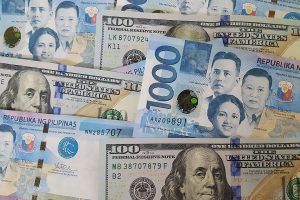BSP makes case for 75-basis-point rate hike

The Philippines will consider another round of outsized interest-rate hike to keep the peso from weakening and feeding into domestic price pressures, central bank Governor Felipe M. Medalla said.
“It’s a question of whether it is 50 or 75 basis points,” Mr. Medalla said in an interview in Washington with Bloomberg Television on Thursday, when asked on the outlook for the next rate meeting. While a 75-basis-point move will ease pressure on the peso and cool inflation, it could impact the economic recovery, he said.
Policymakers in the Philippines, home to Southeast Asia’s worst performing currency this year and among the region’s fastest inflation, are under pressure to halt the peso’s slide and rein in price gains, which risk eroding President Ferdinand R. Marcos, Jr.’s popularity.
The peso dropped more than 13% this year, one of the steepest declines among major Asian currencies. Bangko Sentral ng Pilipinas (BSP) raised the key rate by 225 basis points so far this year, the most in Southeast Asia.
“The argument for not responding point-by-point is that our inflation rate is lower, but the argument for doing something bolder is that the question of the currency also has to be addressed,” Mr. Medalla told Bloomberg Television’s Kathleen Hays and Haidi Lun.
While the central bank may have already done enough as the forecast for inflation is already consistent with the target, “what the Fed does has a very significant effect on what we will do,” he said.
The BSP has been intervening in the currency market to curb excessive volatility and stem the peso’s drop and on Sunday said it may tighten reporting requirements on foreign-exchange transactions. Policymakers are next scheduled to review the key rate on Nov. 17.
“What’s on the table is a combination of using reserves, raising rates, and of course, if possible some form of international cooperation,” Mr. Medalla said. The nation’s foreign-exchange reserves fell to a two-year low of $95 billion in September. — Bloomberg




